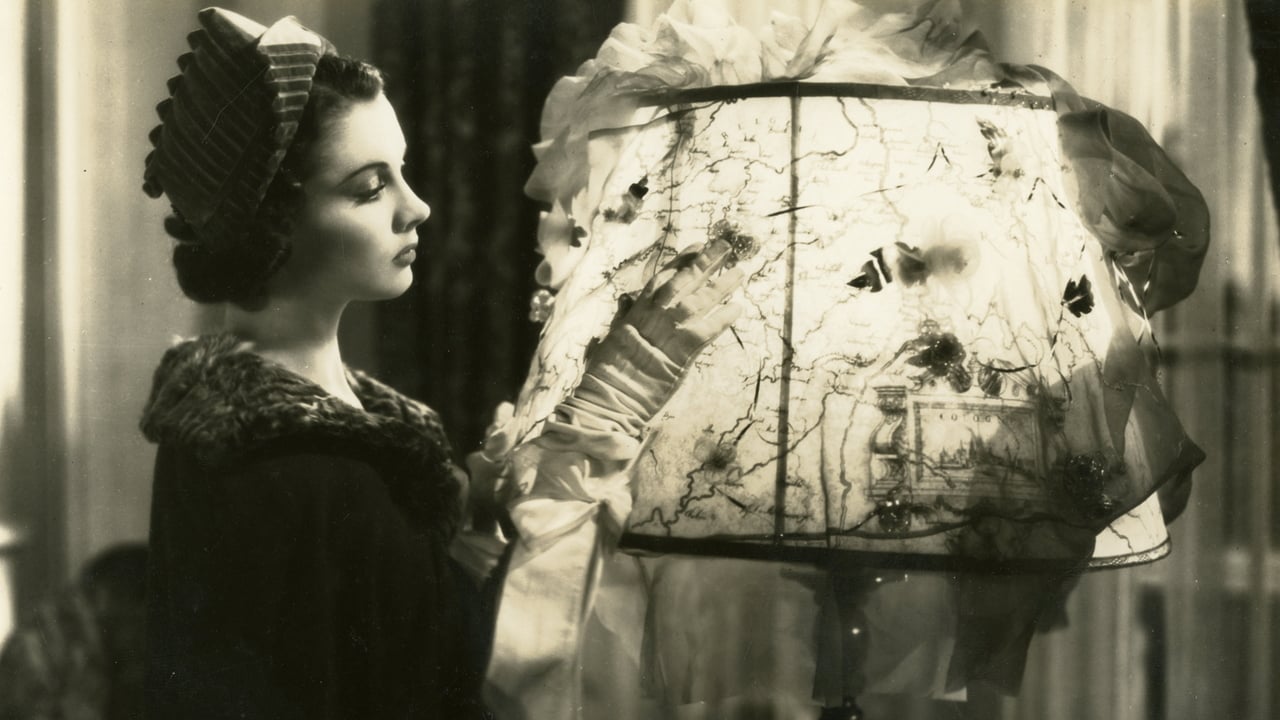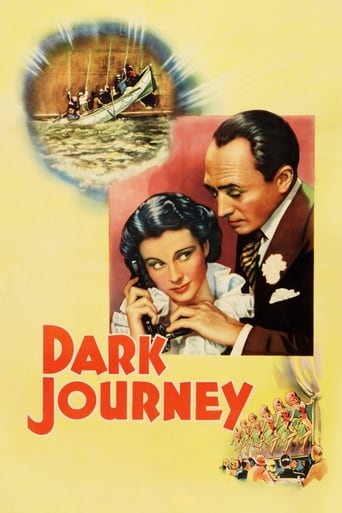



n my opinion it was a great movie with some interesting elements, even though having some plot holes and the ending probably was just too messy and crammed together, but still fun to watch and not your casual movie that is similar to all other ones.
View MoreIt’s an especially fun movie from a director and cast who are clearly having a good time allowing themselves to let loose.
View MoreThe movie is wonderful and true, an act of love in all its contradictions and complexity
View MoreThe movie's neither hopeful in contrived ways, nor hopeless in different contrived ways. Somehow it manages to be wonderful
View MoreSet predominantly in neutral Sweden in 1918, this is quite a clever World War I film when it comes to the spy drama elements but less so when it comes to the romantic ones. Vivien Leigh and Conrad Veidt are very engaging leads as the French double agent Madeline Goddard and the German spymaster Baron von Marwitz who fall in love. The supporting cast is strong such as the producer Alexander Korda's sister-in-law Joan Gardner, Sam Livesey (Roger's dad who sadly died before the film was released), his daughter-in-law Ursula Jeans, Austin Trevor, Cecil Parker and Robert Newton. However, the fact that practically everyone in the film bar Veidt speaks with an English accent irrespective of nationality and wears civilian or otherwise nondescript clothes means that it is occasionally a little hard to tell which side everyone is on! That minor problem notwithstanding, the espionage elements of the story are strong but the script is not without its problems. Chief among them is the fact that von Marwitz is supposed to be a somewhat sympathetic character but he does nothing that would serve to make him even remotely sympathetic. For instance, even though he is in love with her, he is perfectly willing to turn Madeline over to his superiors in Germany where she would almost certainly be shot as a spy. British intervention is the only thing that saves her life. While I understand why a British film made in 1937 would be reluctant to depict a German spy in a favourable light, von Marwitz's behaviour does not work in the context of the storyline. It is a more than a little self-defeating, to be honest. If you're not convinced by the romance in a romantic film, that's not a good sign. At the end of the film, she looks after him longingly, clearly hoping that they will be reunited when the war ends. Not a very smart move on Madeline's part, it has to be said. My first thought was this: "Honey, set your sights on the nice one-armed English guy who was not tempted to have you shot." It was particularly annoying as Madeline was otherwise depicted as being a strong character.
View MoreThere's not really much to this amuse-bouche of two espionage agents in Sweden during World War I. The German agent, the sophisticated and aristocratic Conrad Veidt, and the pouting delicate French agent, Vivien Leigh, are both quite good. I don't find Conrad Veidt particularly handsome but he has some properties that seem to appeal to women -- tall, polite, unspeakably rich, unflappable, and speaks with a Continental accent. He wears a monocle too, as if the rest weren't enough. I don't find him attractive but I'd like to be him.Vivien Leigh is is a genuine stunner. There isn't a plane of her features or an angle of the camera that detracts from her beauty. She can act too. Here, she changes from curt and business-like to winsome and yearning, and she does it convincingly. Years later, as Blanche DuBois, she swooped around dressed in frills and slowly going mad in New Orleans' French Quarter. As a worn-out Southern belle, she was just as convincing. She had the misfortune of suffering for years from a disabling bipolar disorder and finally the tuberculosis that killed her.The set design is noticeably good, even extravagant in the dining room scenes. They're enough to make any normal man's mouth water -- sitting across from a lovely woman in a fancy restaurant, drinking champagne and dreaming of Aphrodite. Yum.The story itself left me confused. Let's see. We're most often in Stockholm during the war. There are German spies. There are French spies. There are British spies. And all of them seem to be spying on each other. It sounds practically MODERN. Vivien Leigh is a French agent. But why is she smuggling information from Paris to Sweden of all places? Why does the French spy network in Stockholm give a damn about the next German offensive. And who do they transmit it to -- French headquarters in Paris? And why does Leigh's comic janitor send secret semaphore signals out his window to someone else? When the broth is reduced, you have a tale of two lovers representing conflicting ideologies and the good one wins. "Ninotchka" did it with more flair but the intent, of course, was different. In 1937 no one in Britain was laughing much about Germany or Hitler's shenanigans.It's in no way a bad movie. Some of the dialog is keen. In the Leigh's boutique, a dresser and a rich man's mistress have a brief exchange. Paramour: "Some men just like to buy a girl everything." Dresser: "With a girl like you, it's easy to understand why." Both the ladies giggle -- and then the mistress's grin turns into a nasty frown. Well, it loses something when it's put into print.
View MoreVivien Leigh fans won't want to miss "Dark Journey," a 1937 film starring the up and coming Leigh and Conrad Veidt. The film takes place during World War I in neutral Sweden, where a Swiss woman, Madeleine Goddard (Leigh) has a dress shop, a front for her spy activities on behalf of - the Germans? Or the French? She becomes involved with a German spy (Conrad Veidt) and is put in danger.This film is a little confusing - it was hard to tell who was on what side and when. Both Leigh and Veidt are very good, but they deserved a better script.Not a huge film, nothing like what would await Leigh in the U.S. a short time later. Worth seeing for her.
View MoreI watched this movie late late late one night and it really caught me off guard. I missed the opening credits and at first thought it was some early Hitchcock movie that for some reason I had never heard of. It has some Hitchcock-esque bits from the snappy dialogue in tense situations, a rich supporting cast, bits in a music hall etc but of course it's not Hitchcock. It's Vivien Leigh, who is massively hot as usual, playing a double spy and falling in love with some creepy German guy. I kept expecting a vaguely handsome, stalwart American hero type to nab her but she actually fell for the German, who was ostensibly a bad guy. I guess 3 years later it would have been impossible to make this film but in 1937 it was ok.As I said, great supporting cast, solid turn by the leads, nice script and tight directing. unfortunately the love story is not as well rendered as it could have been (their exchanges are a bit too arch for my taste), the suspense never really builds to a crescendo and the effects in the end naval engagement certainly do not hold up well but overall it's still a pretty good film.
View More